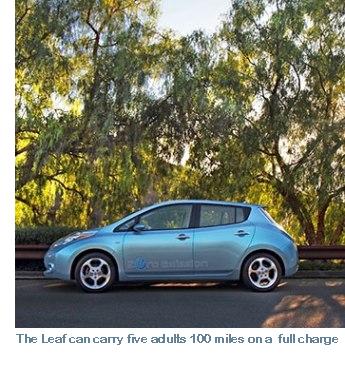 Electric car buyers planning to reduce their motoring costs should not bank on long-term tax breaks, for while motorists in Britain are able to claim a grant of £5,000 against the retail price of an electric car, pay very little tax on the electricity they use to charge their vehicle and are exempt from VED and many parking and congestions, but for their counterparts in America things may be about to change.
Electric car buyers planning to reduce their motoring costs should not bank on long-term tax breaks, for while motorists in Britain are able to claim a grant of £5,000 against the retail price of an electric car, pay very little tax on the electricity they use to charge their vehicle and are exempt from VED and many parking and congestions, but for their counterparts in America things may be about to change.
American lawmakers in Oregan and Washington State are considering a new tax for electric cars in order to make up for lost tax revenue on petrol.
Oregon’s Bill proposes a per-mile fee of 0.6 cents, while in Washington, Bill 5251 a flat tax of $100 per year for electric cars would be charged.
The taxing question of how to pay for cleaner cars
Nobody can be certain how quick British motorists will be to adopt electric cars, but even a five per cent reduction in petrol duty would cost the treasury dearly.
The ETA has been saying for years that we ought to introduce a carbon tax, which would be a equitable way of paying for the roads and paving the way for cleaner vehicles into the bargain.
At the moment producing electricity from coal costs around 3p a kilowatt per hour (3p/kW/h). This is cheaper than burning natural gas or oil and that is why most power stations still use coal to generate electricity. Renewables cannot produce electricity this cheaply as electricity from wind turbines costs 4p/kW/h and the latest solar technology also costs 4p/kW/h.
However, once the Carbon Tax Commission sets its rate for a carbon tax the cost of producing electricity from coal fired power stations would cost more than renewables. From that moment on almost all new “power stations” in this country would be wind or solar based (being Britain more wind than solar).
The nature of the national grid would change from the current hub and spokes system to a peer-to-peer network system. This would radically reduce the cost of power supply.
This in turn would enable cars to run on electricity (currently if all cars ran on electricity the national grid could not cope). This could allow cities (should they have wish to do so) to ban all vehicles that were not zero emission from all or part of their cities. The first bans could be on days and in places where local pollution is above World Health Organisation limits.
This will encourage the motor industry to build cars that can perform 100-mile round trips without refuelling, and filling stations to offer rapid electrical charging.
This could all happen extraordinarily quickly – faster than you can say “iPod” or “mobile phone”. The electronics industry is big, but the energy industry is huge – around three trillion pounds a year and demand for energy is growing rapidly. So the opportunity for renewables is mind boggling – as soon as the price it right.
0 Comments View now